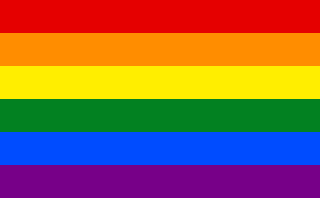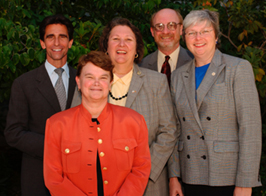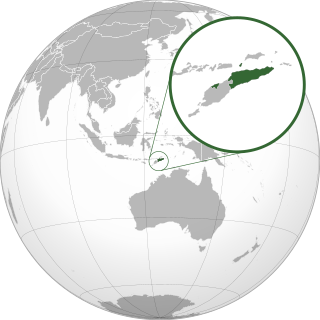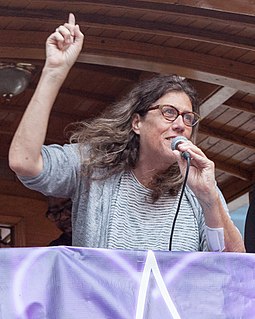Related Research Articles

LGBT is an initialism that stands for lesbian, gay, bisexual, and transgender. In use since the 1990s, the initialism, as well as some of its common variants, functions as an umbrella term for sexuality and gender identity.

The LGBT community is a loosely defined grouping of lesbian, gay, bisexual, transgender, and other queer individuals united by a common culture and social movements. These communities generally celebrate pride, diversity, individuality, and sexuality. LGBT activists and sociologists see LGBT community-building as a counterweight to heterosexism, homophobia, biphobia, transphobia, sexualism, and conformist pressures that exist in the larger society. The term pride or sometimes gay pride expresses the LGBT community's identity and collective strength; pride parades provide both a prime example of the use and a demonstration of the general meaning of the term. The LGBT community is diverse in political affiliation. Not all people who are lesbian, gay, bisexual, or transgender consider themselves part of the LGBT community.

Queer studies, sexual diversity studies, or LGBT studies is the study of issues relating to sexual orientation and gender identity usually focusing on lesbian, gay, bisexual, transgender, gender dysphoria, asexual, queer, questioning, intersex people and cultures.

Francis Otto Matthiessen was an educator, scholar and literary critic influential in the fields of American literature and American studies. His best known work, American Renaissance: Art and Expression in the Age of Emerson and Whitman, celebrated the achievements of several 19th-century American authors and had a profound impact on a generation of scholars. It also established American Renaissance as the common term to refer to American literature of the mid-nineteenth century. Matthiessen was known for his support of liberal causes and progressive politics. His contributions to the Harvard University community have been memorialized in several ways, including an endowed visiting professorship.

Lesbian, gay, bisexual, and transgender (LGBT) persons in Bosnia and Herzegovina face legal challenges not experienced by non-LGBT residents. Both male and female same-sex sexual activity are legal in Bosnia and Herzegovina. However, households headed by same-sex couples are not eligible for the same legal protections available to opposite-sex couples.
Lesbian, gay, bisexual, transgender, and queer (LGBTQ) personnel are able to serve in the armed forces of some countries around the world: the vast majority of industrialized, Western countries including some South American countries such as Argentina and Chile in addition to South Africa, and Israel. The rights concerning intersex people are more vague.
Homophobia encompasses a range of negative attitudes and feelings toward homosexuality or people who are identified or perceived as being lesbian, gay, bisexual, or transgender (LGBT). It has been defined as contempt, prejudice, aversion, hatred or antipathy, may be based on irrational fear and may also be related to religious beliefs.

Lesbian, gay, bisexual and transgender people (LGBT) in the Philippines face legal challenges not faced by non-LGBT people. In the classical era of the islands, prior to Spanish occupation, homosexual individuals usually became babaylan, which are traditionally feminine shamans of the animistic religions. They functioned as healers, mediators, and highly respected spiritual leaders of the communities on par with the ruling nobility. These shamans, however, were persecuted during the conversion of most Philippine ethnic groups into Christianity and Islam, resulting in the discrimination faced by the LGBT community in the present-day.

Lesbian, gay, bisexual, and transgender (LGBT) people in Albania face legal challenges not experienced by non-LGBT residents, due in part to the lack of legal recognition for same-sex couples in the country and prevailing negative attitudes about LGBT people throughout society, although LGBT people in Albania are protected under comprehensive anti-discrimination legislation. Both male and female same-gender sexual activities have been legal in Albania since 1995, but households headed by same-sex couples are not eligible for the same legal protections available to opposite-gender couples, with same-sex unions not being recognized in the country in any form.

Lesbian, gay, bisexual and transgender (LGBT) rights are heavily suppressed in Bangladesh. Due to the conservative mentality of Bangladeshi society, negative attitudes towards homosexuals are very high. Homosexuality is illegal under Bangladeshi law, which is inherited from the British Indian Government's Section 377 of 1860. According to the law, the punishment for doing homosexual activities is imprisonment, therefore it is dangerous for those who identify as homosexuals to openly come out in society because of social rejection, hate or assault.

The California Legislative LGBTQ Caucus is an American political organization formed in June 2002 and composed of openly lesbian, gay, bisexual and transgender members of the California State Legislature. The caucus currently has eight members, which is a record held over three non-consecutive sessions.

Timeline of events related to sexual orientation and medicine

Lesbian, gay, bisexual, and transgender (LGBT) people in East Timor face legal challenges not experienced by non-LGBT residents. Both male and female same-sex sexual activity are legal in East Timor, but same-sex couples and households headed by same-sex couples are not eligible for the same legal protections available to opposite-sex married couples.
Corrective rape, also called curative or homophobic rape, is a hate crime in which one or more people are raped because of their perceived sexual orientation such as homosexuality or bisexuality. The common intended consequence of the rape, as seen by the perpetrator, is to turn the person heterosexual.

Kevin Brett Jennings is an American educator, author, and administrator. He was the assistant deputy secretary for the Office of Safe and Drug-Free Schools at the U.S. Department of Education from July 6, 2009 – June 2011.

Sexual orientation and gender identity in the Australian military are not considered disqualifying matters in the 21st century, with the Australian Defence Force (ADF) allowing LGBT people to serve openly and access the same entitlements as other personnel. The ban on gay and lesbian personnel was lifted by the Keating Government in 1992, with a 2000 study finding no discernible negative impacts on troop morale. In 2009, the First Rudd Government introduced equal entitlements to military retirement pensions and superannuation for the domestic partners of LGBTI personnel. Since 2010, transgender personnel may serve openly and may undergo gender transition with ADF support while continuing their military service. LGBTI personnel are also supported by the charity DEFGLIS, the Defence Force Lesbian Gay Bisexual Transgender and Intersex Information Service.
The right to sexuality incorporates the right to express one's sexuality and to be free from discrimination on the grounds of sexual orientation. Specifically, it relates to the human rights of people of diverse sexual orientations, including lesbian, gay, bisexual and transgender (LGBT) people, and the protection of those rights, although it is equally applicable to heterosexuality. The right to sexuality and freedom from discrimination on the grounds of sexual orientation is based on the universality of human rights and the inalienable nature of rights belonging to every person by virtue of being human.

Susan O'Neal Stryker is an American professor, historian, author, filmmaker, and theorist whose work focuses on gender and human sexuality. She is a professor of Gender and Women's Studies, former director of the Institute for LGBT Studies, and founder of the Transgender Studies Initiative at the University of Arizona, and is currently on leave while holding an appointment as Barbara Lee Distinguished Chair in Women's Leadership at Mills College. Stryker serves on the Advisory Council of METI and the Advisory Board of the Digital Transgender Archive. A transgender woman, she is the author of several books about LGBT history and culture.

The following outline offers an overview and guide to LGBT topics.
HGSC may refer to:
References
- 1 2 3 4 5 6 "Harvard Gender and Sexuality Caucus". HGSC.org. Archived from the original on September 7, 2018. Retrieved September 5, 2018.
- ↑ "About our name change from HGLC to HGSC". Archived from the original on June 12, 2018. Retrieved June 6, 2018.
- 1 2 3 Steinberg, Jacques (June 3, 2009). "Harvard to Endow Chair in Gay Studies". The New York Times . Archived from the original on June 13, 2018. Retrieved June 4, 2009.
- 1 2 3 Jan, Tracy (June 3, 2009). "Harvard to endow professorship in gay studies". The Boston Globe . Boston.com. Archived from the original on October 23, 2012. Retrieved June 3, 2009.
- 1 2 3 Associated Press (June 3, 2009). "Harvard to Endow Chair in Gay, Lesbian Studies". FOXNews.com. Archived from the original on June 7, 2009. Retrieved June 4, 2009.
- ↑ "Harvard Gay & Lesbian Caucus: F. O. Matthiessen Visiting Professorship of Gender and Sexuality". HGLC.org. Archived from the original on June 12, 2009. Retrieved June 4, 2009.